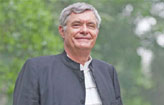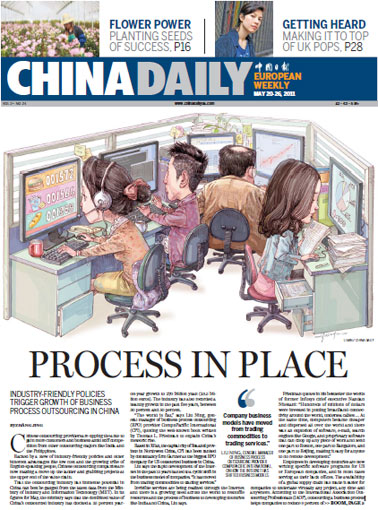Politics
Internet rules at center of 'e-G8' forum in Paris
Updated: 2011-05-25 14:43
(Agencies)
PARIS - France wants better regulation of the Internet. Google's executive chairman says policymakers should tread lightly and avoid "stupid" rules.
Bridging such differences about how the Internet could or should be more regulated took center stage Tuesday at an "e-G8" meeting aimed to parlay the digital world's growing economic clout into a cohesive message for world leaders at the Group of Eight summit later this week in Normandy.
| ||||
The e-G8 comes amid concerns in the industry that some countries - including several in Europe such as France - have taken measures or enacted laws that could curb Internet freedoms.
French President Nicolas Sarkozy, kicking off the conference, said governments need to lay down and enforce rules in the digital world - even as they need to foster creativity and economic growth with the Internet.
It's unclear whether he'll win over digital executives with this argument, or whether the G8 summit will agree on a single policy going forward.
"We need to hear your aspirations, your needs," Sarkozy told hundreds of business executives, creative minds and journalists at Tuileries Gardens in Paris. "You need to hear our limits, our red lines."
Policymakers such as Sarkozy say the blistering pace of growth has often left regulators behind. He said a "balance" needed to be struck to prevent misuse of the Internet - such as to protect children online - while boosting its potential as a driver for economic growth.
While praising the executives, he said regulatory curbs are needed.
"Don't let the revolution that you've begun threaten everyone's basic right to a private life and full autonomy," said Sarkozy. "Full transparency ... sooner or later runs into the very principle of individual freedom."
Google's Schmidt said technological changes have led to a "shift in power" toward individuals - whether to illegally release secret documents or transfer copyrighted material, or rally against their repressive regimes.
"My own opinion is that most governments are having trouble with that shift in power," he said. "So rather than sort of complaining about it, which is what everybody does, why don't we see if we can harness it?"
E-paper

Thawing out
After a deep freeze in sales during the recession, China’s air conditioner makers are bouncing back
Cool Iron lady
Of good and evil
Build on security initiatives
Specials

Memory lanes
Shanghai’s historic ALLEYS not just unique architecture but a way of life

Great expectations
Hong Kong-born singer songwriter rises to the top of the UK pops.

A diplomat of character
Belgian envoy draws on personal fascination to help build China ties.




